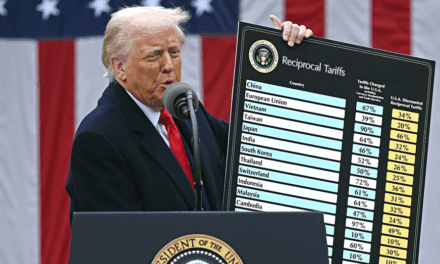In a significant shift in policy, Los Angeles Mayor Karen Bass has proposed a budget that eliminates the Diversity, Equity, and Inclusion (DEI) office within the city’s Fire Department. This decision comes just months after intense public backlash against perceived “woke” initiatives in government. City officials are now grappling with the implications of this budget proposal, which has stirred up a heated debate surrounding the role of DEI in public services.
The proposed budget, which is poised to impact the structure and staffing of the Fire Department, reflects a growing trend among some politicians to move away from initiatives that emphasize diversity as part of government operations. Critics of DEI programs have long argued that such initiatives often result in political correctness overshadowing performance and efficiency, particularly within essential services such as firefighting.
Mayor Bass’s recommendation to remove the DEI bureau is framed within the context of budgetary constraints and the need for the fire department to focus on core operational functions. Many city leaders claim that the Fire Department, which is primarily tasked with protecting lives and property, should prioritize its firefighting responsibilities over social initiatives.
Supporters of the DEI office argue that diversity and inclusion initiatives are vital for ensuring equitable treatment within the fire department and improving community relations. Proponents believe that a diverse workforce can lead to better decision-making and effective responses during emergencies. They cite various studies that indicate diverse teams can enhance problem-solving and yield better outcomes in crisis situations.
The backlash against “woke” policies has gained momentum across several segments of society, with many conservatives openly voicing their discontent. They argue that government entities should steer clear of social and cultural issues, focusing instead on their primary missions. This sentiment appears to resonate with a significant portion of the population, especially in light of rising crime rates and demands for accountability in public services.
Mayor Bass addressed the public’s concerns in a recent press conference, stating, “Our priority must always be public safety. We have a duty to ensure that our fire department can operate at full capacity without the distraction of an office that many feel does not belong in this critical service.” The mayor’s words suggest a clear pivot towards traditional frameworks of governance, which emphasize pragmatism over ideological pursuits.
As the proposal to eliminate the DEI bureau is reviewed by city council members, debates are expected to intensify. Some council members support the budget changes, believing streamlining operations will yield better results. Other council members contend that the reduction of DEI initiatives could have long-term negative repercussions for minority representation and community relations.
Community activists warn that dismantling the DEI office is a step backward in efforts to combat systemic inequalities that persist in emergency response services. Studies have shown that minority communities often feel underserved and overlooked by emergency responders. Dismantling initiatives aimed at addressing these disparities could exacerbate existing tensions and mistrust between these communities and the fire department.
The proposed budget will undergo several rounds of scrutiny and debate before being finalized. Stakeholders from various sectors of the community are expected to voice their opinions during public forums, urging council members to consider the broader implications of such cuts. The outcome may set a precedent for how other city departments manage diversity initiatives in the coming years.
The push against DEI initiatives is not a unique phenomenon to Los Angeles. Cities across the United States have seen similar discussions unfold, with several local governments reconsidering their commitments to diversity-focused programs amid public criticism. This widespread reevaluation brings forth questions regarding the future of DEI efforts across public institutions nationwide.
This proposed reduction in funding also raises questions about whether similar measures will be taken in other departments, such as police and emergency medical services, which may have been similarly affected by recent backlash against DEI initiatives. Some observers suggest that the move could pave the way for a shift in focus among city administrations, leading further away from inclusion strategies and towards traditional public safety protocols.
Critics of the Mayor’s budget proposal argue that the elimination of diversity initiatives is misaligned with modern societal expectations. In an increasingly diverse world, they assert that organizations like fire departments must mirror the communities they serve to effectively protect and engage with all citizens. They importantly point to engagement strategies that build trust and cooperation as essential for effective emergency response.
In response to the proposed cuts, a coalition of community leaders, activists, and former firefighters has mobilized to oppose the elimination of the DEI office, asserting that DEI efforts should be further expanded rather than diminished. They argue that creating a culture of inclusion is essential for effective communication and collaboration, particularly in high-stress emergency situations.
The DEI office was originally established to address long-standing issues related to recruitment, retention, and internal culture within the fire department. Supporters state that removing the office will effectively erase years of hard work aimed at fostering an inclusive workplace that is representative of Los Angeles’s rich cultural diversity.
In lieu of the DEI bureau, proponents of its mission hope that the city will consider alternative methods to maintain focus on diversity and equity, including training programs and public engagement initiatives that encourage dialogue and understanding within the community and across city departments.
As part of the ongoing response to the proposed budget cuts, community members are calling for alternatives that both promote accountability within the fire department and advocate for continued efforts towards inclusion. They emphasize the need for an approach that does not hinge on political trends but fundamentally understands the crucial nature of representation in fostering effective public services.
The landscape surrounding DEI initiatives in American public service is evolving rapidly, and the outcome of this budget proposal in Los Angeles could serve as a bellwether for similar decisions across the nation. As cities grapple with balancing fiscal responsibility against social equity, how they navigate these tensions may define the future of their public safety services.
In conclusion, the proposal by Mayor Bass to eliminate the DEI bureau from the Los Angeles Fire Department signals a pivotal moment in the ongoing dialogue surrounding diversity and inclusion in public-services. It underscores the tension between traditional governance models and modern societal values regarding representation and equity. As the city moves towards finalizing its budget, community response and engagement will undoubtedly play a crucial role in shaping the dialogue surrounding these critical issues.































